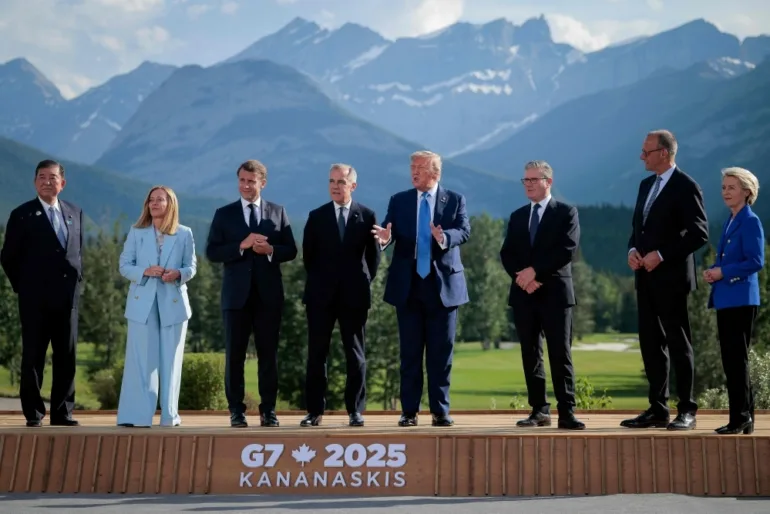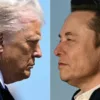World leaders at the G7 summit in Canada on Monday pressed U.S. President Donald Trump to de-escalate his intensifying trade war, warning that his tariff strategy threatens to destabilize the global economy.
Despite efforts by host Canada to keep the focus on unity and avoid provoking Trump, the trade dispute dominated discussions. Leaders privately and publicly urged the U.S. president to reconsider his plans to expand tariffs on imports, which could take effect as early as next month.
Most G7 countries are already facing a 10% baseline U.S. tariff, with additional levies imposed on cars, steel, and aluminum from Europe and Japan. During one-on-one meetings, several leaders lobbied Trump to strike trade deals that would avert further escalation.
“Several participants asked to end the tariff dispute as soon as possible,” a senior German official said anonymously, adding that the standoff was weakening G7 economies and “in the end will only strengthen China.”
Trump did formalize one trade agreement on the sidelines of the summit—finalizing a deal with the United Kingdom, the first country to secure a bilateral trade pact that sidesteps the looming tariffs.
“I like them. That’s the ultimate protection,” Trump said during a photo op with British Prime Minister Keir Starmer.
In a light-hearted moment, the president opened a folder to display the signed deal, only for the documents to spill onto the floor. “Oops, sorry about that,” he said, as Starmer scrambled to retrieve the scattered pages.
Trade tensions cloud G7 agenda
The stakes are particularly high for Canada, which has been hit with a string of new U.S. levies in recent months. Following talks with Prime Minister Mark Carney, the Canadian government indicated the two sides could reach a trade truce within 30 days.
Japanese Prime Minister Shigeru Ishiba also held a 30-minute bilateral with Trump. “As there are still some points where both sides disagree, we have not reached an agreement on the package as a whole,” Ishiba told reporters, according to Japan’s NHK.
Other major economies—such as South Korea, Brazil, India, and South Africa—had hoped to make their case when they join the summit on Tuesday. But Trump abruptly departed early due to the Iran crisis, cutting short any such engagement.
More than a dozen countries are now racing to finalize trade deals before a July 9 deadline, when Washington has warned it may begin imposing sweeping reciprocal tariffs.
Mexico, represented at the summit by President Claudia Sheinbaum, is pushing to renegotiate the North American Free Trade Agreement with the U.S. and Canada.
While a breakthrough on broader trade negotiations was never expected, the presence of U.S. Trade Representative Jamieson Greer signaled Washington’s openness to continued talks.
According to sources, French President Emmanuel Macron used his meeting with Trump to urge a rapid resolution to the trade impasse. European Commission President Ursula von der Leyen, who also met Trump one-on-one, stressed that tariffs are ultimately a burden borne by domestic consumers and businesses.
“Tariffs—no matter who sets them—are ultimately a tax paid by consumers and businesses at home,” von der Leyen said during the morning session.
After her meeting with Trump, she posted on X: “We instructed the teams to accelerate their work to strike a good and fair deal. Let’s get it done.”
AFP


